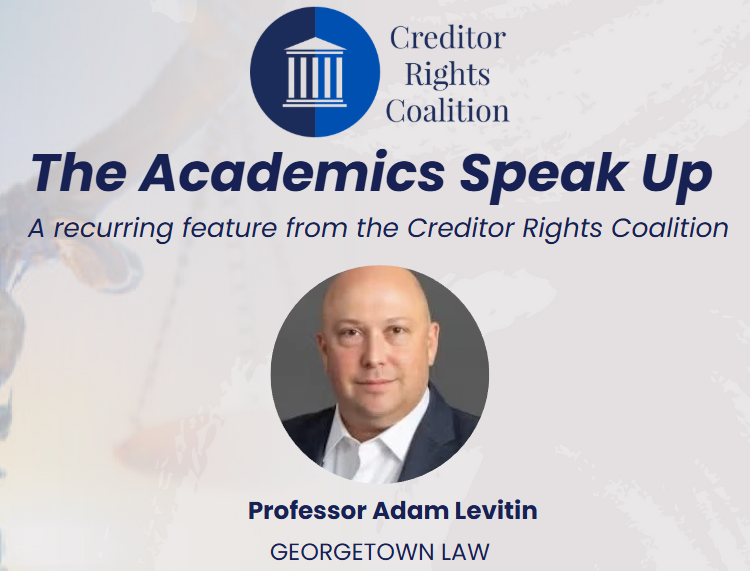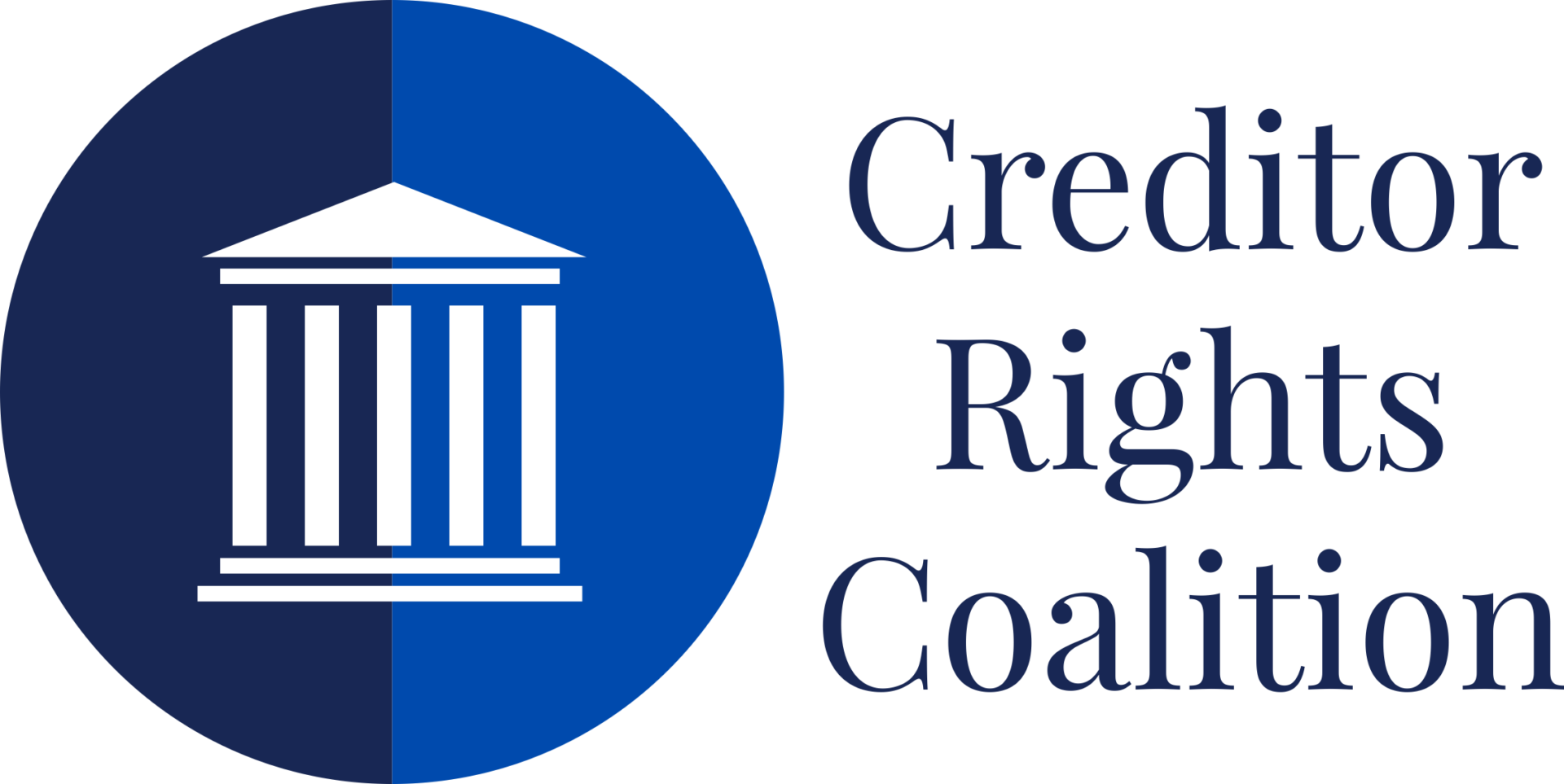The Academics Speak Up: Levitin on Independent Directors

As part of our ongoing series on the role of independent directors in the restructuring process, we asked renowned Professor Adam Levitin of Georgetown Law to give his take. Levitin argues that the concept of an independent director is inappropriate and potentially harmful in the bankruptcy context. While they are presumed to be impartial, their selection process inherently ties them to shareholder interests. Courts should not be deferring to their judgments but should rather empower creditor committees to conduct independent investigations, as these are more aligned with bankruptcy’s policy goals and free from structural conflicts.
“Independence” Is a Misnomer
Professor Adam J. Levitin*
“You keep using that word. I do not think it means what you think it means.”
—Inigo Montoya in The Princess Bride
The Silvergate examiner’s report tees up the issue of what sort of role, if any, independent directors should play in bankruptcy. Independent directors, often acting as a “Special Investigative Committee” or the like, are often used to examine and settle estate causes of actions, as well as to evaluate proposed DIP financing terms and asset sale processes. In all instances, their judgment is alleged to deserve deference from the bankruptcy court because of their supposed “independence.” This “independence,” however, is not what it appears to be, and the judgment of independent directors should receive no deference whatsoever in bankruptcy.
The term “independent director” makes it sound as if such director were entirely free from conflicts of interest, but it is actually a defined term that comes from Delaware caselaw and NYSE and Nasdaq listing rules. The Delaware Supreme Court has defined independence as requiring that “a director’s decision is based on the corporate merits of the subject before the board rather than extraneous considerations or influences.”
The exchanges’ rules have bright line requirements for independence: the director cannot be employed by the company, have a substantial business relationship with the company, or be a family relation of such a person. Additionally, for exchange rules require that the board itself determine that the director does not have a “material relationship with the listed company (either directly or as a partner, shareholder or officer of an organization that has a relationship with the company)” (NYSE) or “a relationship which, in the opinion of the Company’s board of directors, would interfere with the exercise of independent judgment in carrying out the responsibilities of a director.” (Nasdaq).
The problem with these definitions is that they do not address the conflict that arises from the way a person is selected to be an independent director. Directors are selected by the shareholders of a firm, but a firm’s existing board generally selects who is on the ballot given to shareholders. This process gives existing shareholders substantial control over who is chosen as a director, not just through their vote, but through their control over who is on the ballot. As a result, directors typically owe their positions to the support of a particular shareholder or subset thereof. Thus, if the director ends up crosswise with that shareholder, he will not just lose his board seat, but he will not get selected to serve on any other boards by that shareholder. As a result, directors are inherently compromised if they hope to stay in the good graces of the nominating shareholder(s). Given the frequency of repeat player independent directors on the boards of bankrupt companies, the concern about a conflict of interest due to the desire for repeat business is hardly speculative. (Contrast this with selection of examiners by the US Trustee—there is no repeat business whatsoever.)
Remarkably, nothing in this situation would prevent a director from being “independent” under exchanges’ rules, and the Delaware Supreme Court has expressly stated that “it is not enough to charge that a director was nominated by or elected at the behest of those controlling the outcome of a corporate election. That is the usual way a person becomes a corporate director.” Thus, a private equity firm’s handpicked director can be “independent,” as can a person chosen by the debtor’s law firm because they define independence vis-à-vis the company, not vis-à-vis shareholders.
Independence is so defined because the concern animating the Delaware law and the exchanges’ rules is protecting shareholders from expropriation by managers. In contrast, the typical concern in bankruptcy is protecting creditors from expropriation by shareholders. Yet what we have seen in recent years is the weaponization in bankruptcy of a device meant to be a shield outside of bankruptcy.
It should be irrelevant to bankruptcy courts whether a director is “independent” under state corporate law, as that terms is designed to manage creditor-shareholder conflict, as opposed to shareholder-manager conflict. Accordingly, courts should not defer to the judgment of independent directors on any matters, as from the perspective of bankruptcy policy concerns, an independent director is no different than an inside director.
Moreover, in order to avoid any appearance of conflicts of interest, much less actual conflicts, courts should deputize official committees with derivative standing to investigate, prosecute, and settle any causes of action the estate might have against managers, shareholders, and creditors. (This is exactly what section 202 of the proposed Stop Wall Street Looting Act would have done.) Unlike at state corporate law, in bankruptcy there is an existing entity that can undertake a derivative litigation, and there is no efficiency loss: equally thorough investigations should cost the same, regardless of whether undertaken internally or externally, and in all cases the costs are administrative expenses.
Only an external investigation, however, will truly be unconflicted. The real “efficiency” concern is that an external investigation will in fact be thorough and might derail the plan that the shareholder(s) behind the “independent” director(s) are hoping to ram through. In other words, the concern is really one about the distributional impact, not just about maximizing the value of the bankruptcy estate.
The concept of independent directors is unknown to the Bankruptcy Code. Instead, it is misappropriated from corporate law, where it is a device designed to concerns about protecting shareholders from managers. It should play no role in bankruptcy law, which is dealing with a distinct set of issues about creditor-shareholder conflict.
*Adam J. Levitin is the Carmack Waterhouse Professor of Law and Finance at Georgetown Law.
Copyright 2025 Creditor Rights Coalition
